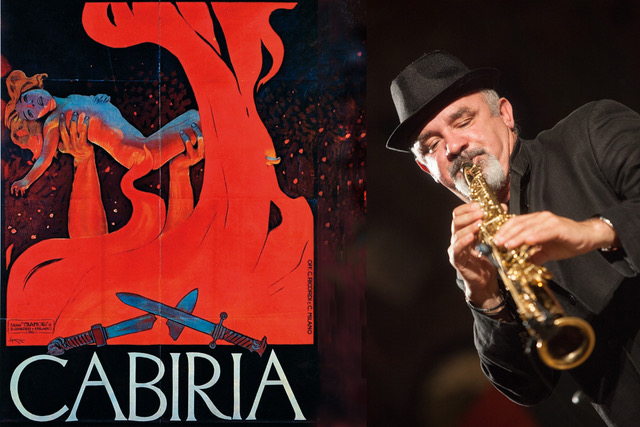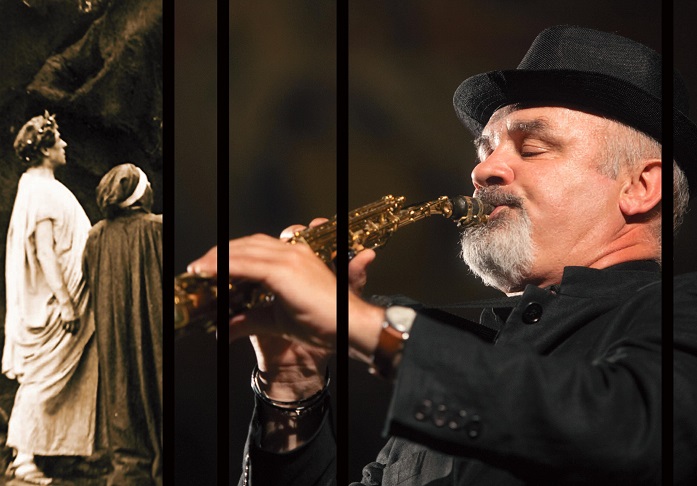My new productions for Silents Movie
CABIRIA

have a look to the
video promo:
Cabiria
Soundtrack by and with Marco Castelli
Cabiria
is a 1914 Italian epic silent film, directed by Giovanni Pastrone and
shot in Turin. The film is set in ancient Sicily, Carthage, and Cirta during
the period of the Second Punic War (218–202 BC). It follows a melodramatic
main plot about an abducted little girl, Cabiria, and features an eruption
of Mount Etna, heinous religious rituals in Carthage, the alpine trek of Hannibal, Archimedes'
defeat of the Roman fleet at the Siege of Syracuse and Scipio maneuvering
in North Africa. Apart from being a classic on its own terms, the film
is also notable for being the first film in which the long-running film
character Maciste makes his debut. In this work Pastrone invented the
epic movie and deserves credit for many of the innovations as the extensive
use of a moving camera, thus freeing the feature-length narrative film
from "static gaze".
.........Marco Castelli, saxophonist and composer carries out his activity
not only in the world of jazz, but also within the scope of theater,
dance and contemporary performance, in 'solo' with the formula of the
live sax and electronics for the live soundtrack of this masterpiece
of the Italian silent film, he carries the audience in a world of sounds,
which makes even more exciting the vision of the incredible images of
the film simultaneously giving them a surprising modernity.......
---------------------------------------------------------------------
L'INFERNO

have a look to the
video promo:
L'Inferno
Soundtrack by and with Marco Castelli
The
Inferno, (1911) silent movie by Francesco Bertolini, Giuseppe de
Liguoro and Adolfo Padovan, produced by Milan Films, is the first colossal
film in history of the Italian cinema. Adaptation of the first cantica
of Dante's Divine Comedy, only available in copies damaged, mutilated
or censore, was in 2011, painstakinkly restored to its original edition,
with the correct sequence of the shots, and to the fullness of his light
and colors.
L'Inferno was first screened in Naples in the Teatro Mercadante on March
10, 1911. An international success, it grossed more than $2 million
in the United States, where its length gave theater owners an excuse
for raising ticket prices.For many years, L'Inferno was largely unseen
and only available in lower quality, incomplete copies. In 2004, a newly
restored version of the film, combining British and American prints
from the BFI National Archive and the Library of Congress